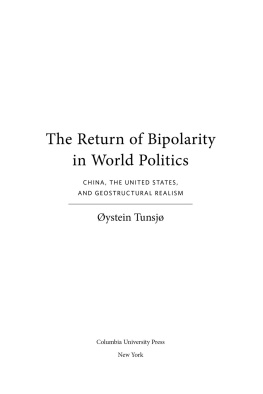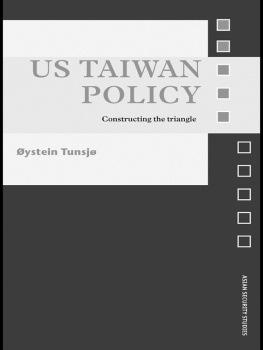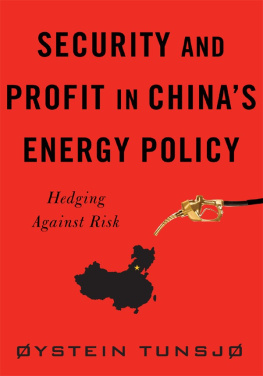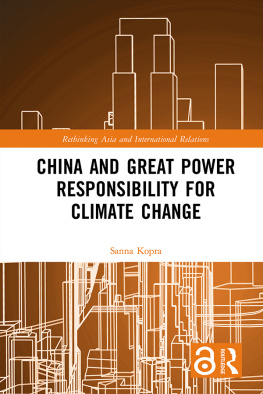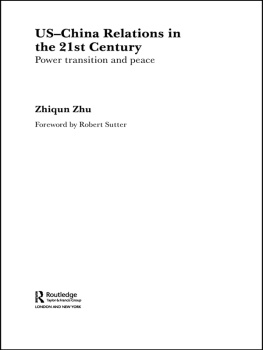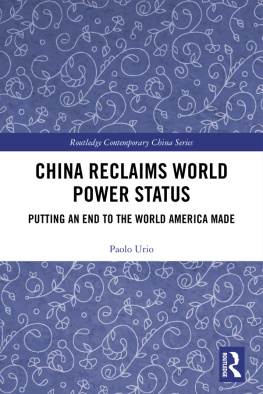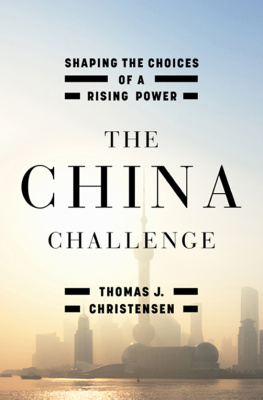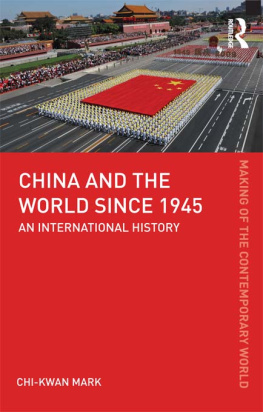Øystein Tunsjø - The Return of Bipolarity in World Politics: China, the United States, and Geostructural Realism
Here you can read online Øystein Tunsjø - The Return of Bipolarity in World Politics: China, the United States, and Geostructural Realism full text of the book (entire story) in english for free. Download pdf and epub, get meaning, cover and reviews about this ebook. year: 2018, publisher: Columbia University Press, genre: Politics. Description of the work, (preface) as well as reviews are available. Best literature library LitArk.com created for fans of good reading and offers a wide selection of genres:
Romance novel
Science fiction
Adventure
Detective
Science
History
Home and family
Prose
Art
Politics
Computer
Non-fiction
Religion
Business
Children
Humor
Choose a favorite category and find really read worthwhile books. Enjoy immersion in the world of imagination, feel the emotions of the characters or learn something new for yourself, make an fascinating discovery.
- Book:The Return of Bipolarity in World Politics: China, the United States, and Geostructural Realism
- Author:
- Publisher:Columbia University Press
- Genre:
- Year:2018
- Rating:4 / 5
- Favourites:Add to favourites
- Your mark:
The Return of Bipolarity in World Politics: China, the United States, and Geostructural Realism: summary, description and annotation
We offer to read an annotation, description, summary or preface (depends on what the author of the book "The Return of Bipolarity in World Politics: China, the United States, and Geostructural Realism" wrote himself). If you haven't found the necessary information about the book — write in the comments, we will try to find it.
The Return of Bipolarity in World Politicssurveys the new era of superpowers to argue that the combined effects of the narrowing power gap between China and the United States and the widening power gap between China and any third-ranking power portend a new bipolar system that will differ in crucial ways from that of the last century. Tunsj expands Kenneth N. Waltzs structural-realist theory to examine the new bipolarity within the context of geopolitics, which he calls geostructural realism. He considers how a new bipolar system will affect balancing and stability in U.S.-China relations, predicting that the new bipolarity will not be as prone to arms races as the previous eras; that the risk of limited war between the two superpowers is likely to be higher in the coming bipolarity, especially since the two powers are primarily rivals at sea rather than on land; and that the superpowers are likely to be preoccupied with rivalry and conflict in East Asia instead of globally. Tunsj presents a major challenge to how international relations understands superpowers in the twenty-first century.
Øystein Tunsjø: author's other books
Who wrote The Return of Bipolarity in World Politics: China, the United States, and Geostructural Realism? Find out the surname, the name of the author of the book and a list of all author's works by series.

